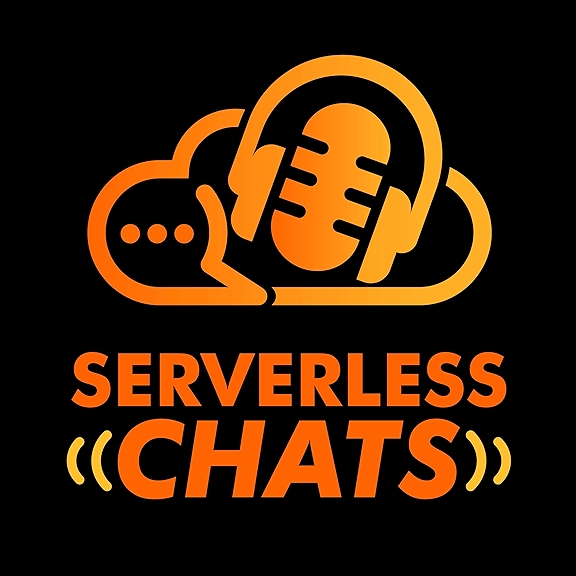
Episode #68: Optimizing your Lambda Functions with Alex Casalboni (PART 1)
About Alex Casalboni
Alex Casalboni has been building web products and helping other builders learn from his experience since 2011. He’s currently a Senior Technical Evangelist at Amazon Web Services, based in Italy, and as part of his role, often speaks at technical conferences across the world, supports developer communities and helps them build applications in the cloud. Alex has been contributing to open-source projects such as AWS Lambda Power Tuning, and co-organizes the serverless meetup in Milan, as well as ServerlessDays Milan (previously JeffConf). He is particularly interested in serverless architectures, ML, and data analytics.
- Twitter: https://twitter.com/alex_casalboni
- LinkedIn: https://www.linkedin.com/in/alexcasalboni/
- Website: https://alexcasalboni.com/
- Dev.to: https://dev.to/alexcasalboni
- Medium: https://medium.com/@alexcasalboni
- AWS Lambda Power Tuning Project: https://github.com/alexcasalboni/aws-lambda-power-tuning
- Deep dive: finding the optimal resources allocation for your Lambda functions: https://dev.to/aws/deep-dive-finding-the-optimal-resources-allocation-for-your-lambda-functions-35a6
- Test Functions/Patterns for Power Tuner: https://gist.github.com/alexcasalboni/9ce2cef56a7d052d4f5e798b37083525
Watch this episode on YouTube: https://youtu.be/31LHFQ1lT78
Transcript
Jeremy: Hi, everyone. I'm Jeremy Daly and this is Serverless Chats. Today, I'm chatting with Alex Casalboni. Hey, Alex, thanks for joining me.
Alex: Hi, Jeremy. Thanks for having me.
Jeremy: So, you are a senior developer advocate at AWS. So, why don't you tell the listeners a little bit about your background, and what you do as a senior developer advocate?
Alex: Sure. So, I come from the web development, software engineering, and also startup world. And I combine that and I try to help customers using AWS, discovering all the different services and I used to travel the world. Now I do a lot of virtual conferences.
Jeremy: So, as a DA, I know you've been working a lot with serverless. And one of the things that you publish a lot about, you got an open source project that we'll get into about this. But you do a lot with optimizing and tuning the performance of Lambda functions. And I think a lot of people sort of assume that all of this stuff is done for you maybe that it's just a matter of putting your code up there, and it just automatically does what you need it to do. Now, if you look at some of the surveys and look at some of the research data that shows that people just typically use the defaults, I think that people do assume that quite a bit. But there are ways to optimize your Lambda functions. So, what are some of the sort of main things that we have control over when it comes to optimizing Lambda functions?
Alex: Sure. So, there is a lot that the Lambda team, and actually the AWS team is doing to optimize the service itself for performance, to make it faster, to make it more reliable, to make it cheaper, eventually. But of course, it's a service and you can configure it. And with every configuration, you can fine-tune it for your specific use case, right? So, whether you are developing a RESTful API, or an asynchronous service for ETL. Whatever you're building, you might have very different needs in terms of performance or you may, you need to bring the cost to as minimal as possible. So, there are many things you can do. And maybe we'll talk about some of those. I got very passionate about this topic because I keep meeting a lot of developers that are just mind-blown when I tell them about the power-tuning side of things, and how they can actually get a lot more performance, and sometimes even a lot less cost. They can make their functions cheaper just by tuning the memory of their Lambda functions. So, that's what I'm really passionate about.
Jeremy: Yeah, so I mean, and if you think about building any type of application, I mean, obviously, there's a couple of major components to it. I mean, you have to think about latency. You need to think about throughput, especially if you're transferring large files back and forth from S3. And you have to think about cost, right? Cost is always sort of an important factor. So, what are some of the things, maybe we start there. What are some of those things? Do you have control over those three factors? Are there ways besides just the memory manipulation that you can really focus in on those?
Alex: Well, when it comes to the speed itself, the execution time itself, you actually do have control, and there are many things you can do to speed up the average execution. We can talk about cold starts or the large majority of your execution as well when it comes to Lambda. There is also a lot you can do to optimize for throughput. Usually, it's something you do at the architectural level. It's not just like a configuration parameter where you increase throughput. There are services like that. Like, I don't know, Kinesis Streams where you have some configuration that allows you to have more throughput on a megabyte per second, maybe.
But for Lambda itself, you don't really have a parameter to increase throughput. All that is managed by the service. What you can do is at the architectural level, maybe if we have a 10 gigabytes of data to analyze instead of doing it in series 10 megabytes at a time, you can do it in parallel. So, that's an architectural change, that pattern change, but it's not really a configuration of Lambda itself. It's more in the way you use all these services together, in my opinion.
When it comes to cost you also have control over that. There are many guardrails you can take to control the span, to control the parallelism of how many Lambda instances you can add. You can set it to zero if you want to stop everything. So, there are many ways you can control costs. What happens usually in the wild, that's what I see is that most developers I meet are more interested in optimizing for performance just because cost itself of Lambda is a relatively small percentage of their bill. So, they're not so much concerned about, "I want to make a Lambda as cheap as possible." Usually, they want to make the overall architecture cheaper. And they are happy to pay a little bit more for Lambda, if they can make it faster.
Jeremy: Right. Yeah. All right. So, let's talk about cold starts because this is the thing that always comes up. I think there's a lot of confusion around how often you get cold starts, how much of an impact they actually have, when they happen and things like that. So, let's start there. How much of an impact do cold starts actually have on your application?
Alex: It kind of depends on the type. I would say there's no typical answer, I know, I'm sorry. But it depends how often you involve your function. It depends how often you're scaling out to additio...




















